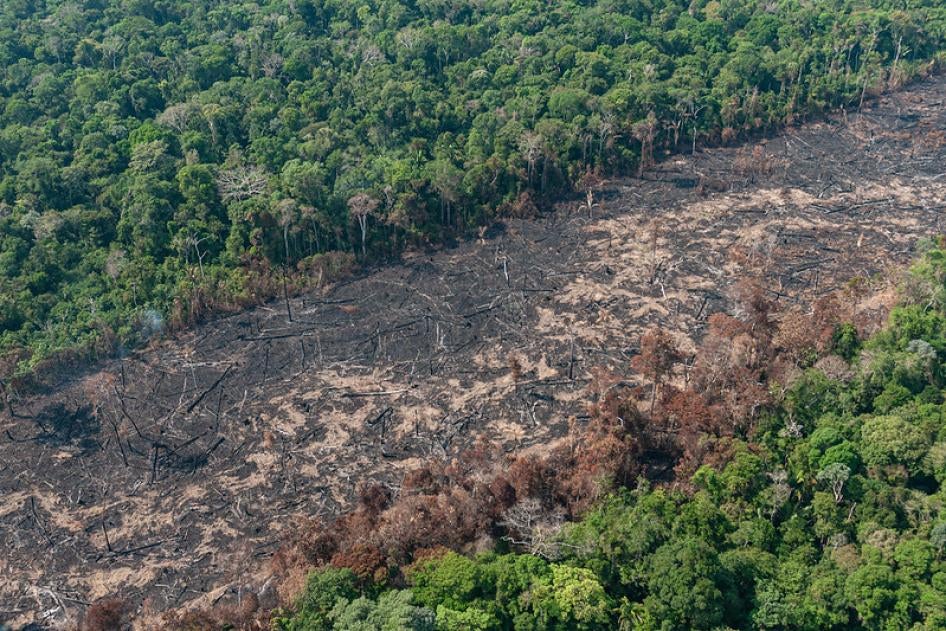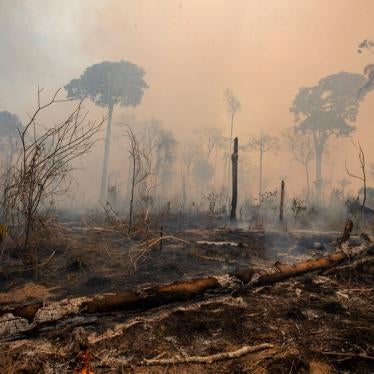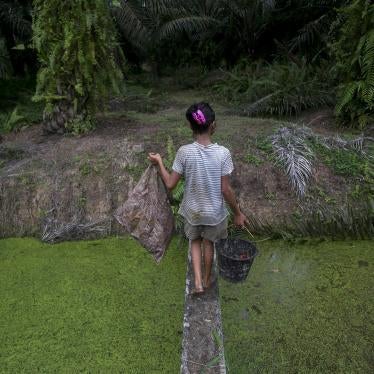“The forest dies first, we die later,” said Ka’apor chief Itahú as we patrolled the vast Alto Turiaçu Indigenous territory in the Brazilian Amazon, looking for evidence of illegal logging. During our time together, he spoke at length of his people’s connection to their land and the important role it plays not only as a source of food and medicine, but also as a cornerstone of their spiritual beliefs and cultural identity.
Forests and trees provide vital resources to 1.3 billion people. More than 300 million people, nearly half of whom are Indigenous, rely almost entirely on forests to fulfill their needs.
But forests also play a crucial role in efforts to contain climate change, by absorbing and storing planet-warming gases. Frontline communities’ struggles to protect their forests therefore have a global relevance.
Here are three crucial battlegrounds where we’re stepping up. Across all of them, we will expose the threats against, and highlight the victories of, local forest defenders on the front lines.
First, we need to hold businesses accountable for razing forests. Industrial agriculture is the largest driver of global deforestation. Communities’ forests are cleared, often illegally, to grow crops like soy or oil palm, or to graze cattle. Major corporations repeatedly pledged to clean up their supply chains and it’s time they deliver.
Second, we need major consumer markets to adopt legislation that restricts imports of timber and agricultural commodities tainted with deforestation and rights abuses. Curbing demand for goods that contribute to deforestation is key to tipping the scales in favor of communities under attack.
Third, we need to ensure that efforts to protect the world’s forests don’t undermine the rights of forest peoples. The COP26, the 2021 climate change conference, propelled “nature-based solutions” to the forefront, and countries agreed on rules to create an international market to trade “emissions reductions” – both the “solutions” and “reductions” are largely expected to come from forests. This year, countries will also adopt a framework to protect biodiversity.
The COP26 decisions and upcoming framework are global developments central to the future of forests, but they come with human rights risks, in particular the threat that the push to conserve forests may exclude its traditional inhabitants. We will be vigilant about how these developments play out in practice and support rights-based, community-led conservation. It is critical that people who live in and around protected forests are fully involved in developing conservation plans and can directly share in their benefits.









